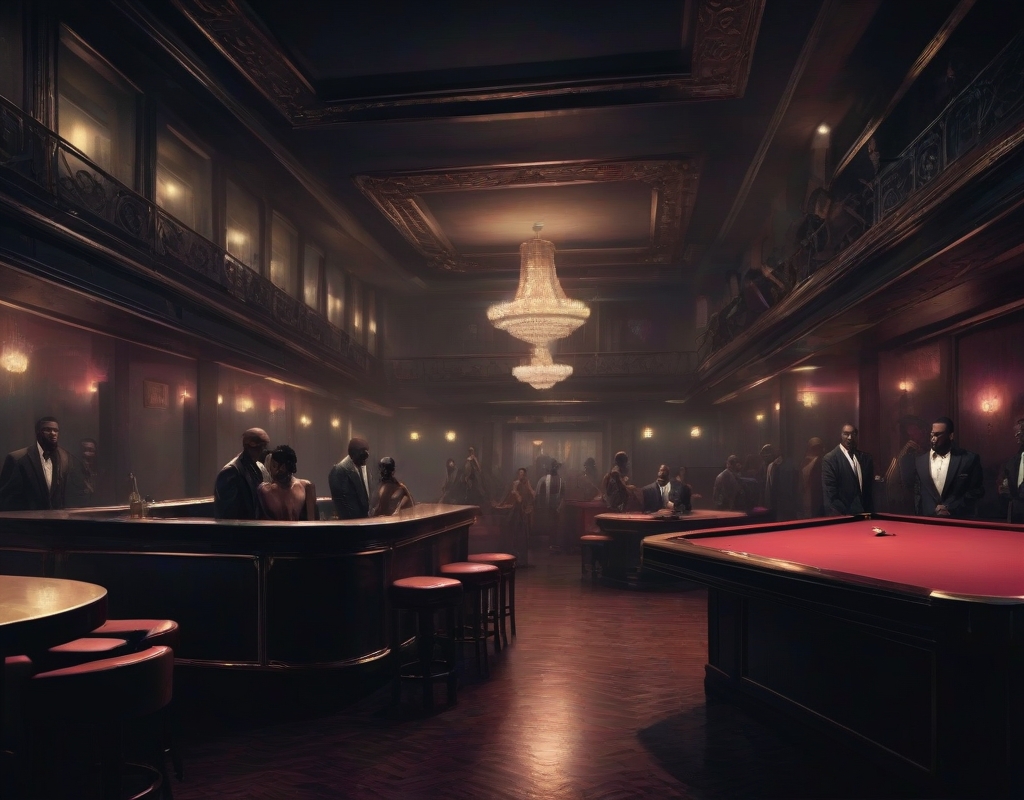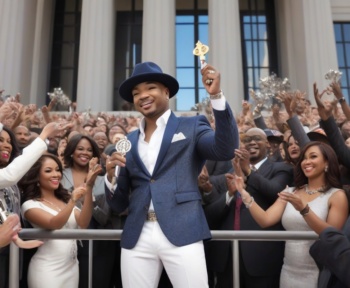Funkmaster Flex, a notable figure in the world of hip-hop, has reignited controversy by challenging Shyne’s account of the infamous 1999 nightclub shooting in which Shyne was involved. Shyne, who began his career as a rapper and now serves as a politician in Belize, alleges that he was used as a scapegoat to protect Sean “Diddy” Combs, also known as Puff Daddy during that era. Flex, disputing these claims, argues that Shyne’s retelling of events in the forthcoming documentary “The Honorable Shyne” distorts the truth, particularly pointing fingers at Diddy unjustly.
On that fateful night at Club New York, Shyne, at the outset of his career with Bad Boy Records, was implicated in a shootout that resulted in injuries to three individuals. The incident has always been a point of contention and speculation, especially considering Diddy’s acquittal of charges related to the event. The incident left a lasting impact on all parties involved and has remained a painful memory that continues to provoke debate in the public sphere.
Now, with Shyne’s documentary slated for release on November 18, he seeks to shed light on his perspective of the events. The film is said to include powerful testimonials from notable figures in the music industry, illustrating Shyne’s potential and the circumstances surrounding his legal troubles and eventual deportation. This documentary aims to revisit Shyne’s narrative, potentially altering public perception of the event that derailed his career.
Critically, Funkmaster Flex has voiced stern criticism against Shyne’s claims. Known for his candid commentary, Flex has questioned Shyne’s credibility, emphasizing that his narrative may not reflect the reality of that night’s events. Flex’s critique isn’t just a mere rivalry; it underscores a deeper loyalty to Diddy, and perhaps a personal take on the responsibility and integrity of narratives shared from past events within hip-hop culture.
The dispute between Shyne and Flex brings to light larger conversations about the authenticity and reliability of personal accounts in the public eye, particularly in an industry as scrutinized as hip-hop. This debate is not just about what happened that night, but also about who gets to tell the story and how it impacts legacy and truth in the musical domain.
Commentary from insiders suggests the 1999 shooting marked a decisive moment in hip-hop, symbolizing the potential dangers associated with fame in the music industry. This event has typically been highlighted as a cautionary tale—a reminder of how quickly burgeoning careers can be overshadowed by controversy. The incident and its aftermath sparked extensive media coverage and public discourse, making it a landmark case study in the intersection of celebrity culture and legal entanglements.
Moreover, historical analyses suggest that the late 1990s experienced a notable increase in crimes linked to the entertainment industry. This trend prompted broader discussions about the role entertainers play as influential figures in society. The backdrop of these crimes within the rise of hip-hop adds a complex layer to the narrative, fueling ongoing debates about personal responsibility, societal expectations, and the portrayal of artists within public discourse.
As Shyne endeavors to navigate the delicate intricacies of redeeming his narrative through his documentary, the conversations sparked by his and Flex’s differing recounts underscore the perpetual struggle over memory, historical accuracy, and the formation of legacy in music history. They reflect an enduring saga within hip-hop, where each account and recollection contributes to the mosaic of its expansive and often disputed history.
The release of “The Honorable Shyne” is poised to add a new chapter to this ongoing discussion, potentially reshaping discussions around the figures involved and influencing how history will remember the cultural and personal dynamics of hip-hop during this contentious time.
As observers, critics, and fans await the public screening of Shyne’s documentary, the discourse surrounding this historical episode remains alive with challenges. It encapsulates not only the quest for truth and clarity but also highlights the tension between differing perceptions of the past, each influenced by personal biases, cultural context, and the inevitable passage of time. The clash between Shyne’s quest for redemption and Flex’s staunch criticism vividly illustrates the complexities inherent in reconciling the past, especially within a culture as rich and varied as hip-hop. As the stories continue to unfold and evolve, the true narrative may remain elusive, preserved only in the fragmented recollections of those who lived it.




